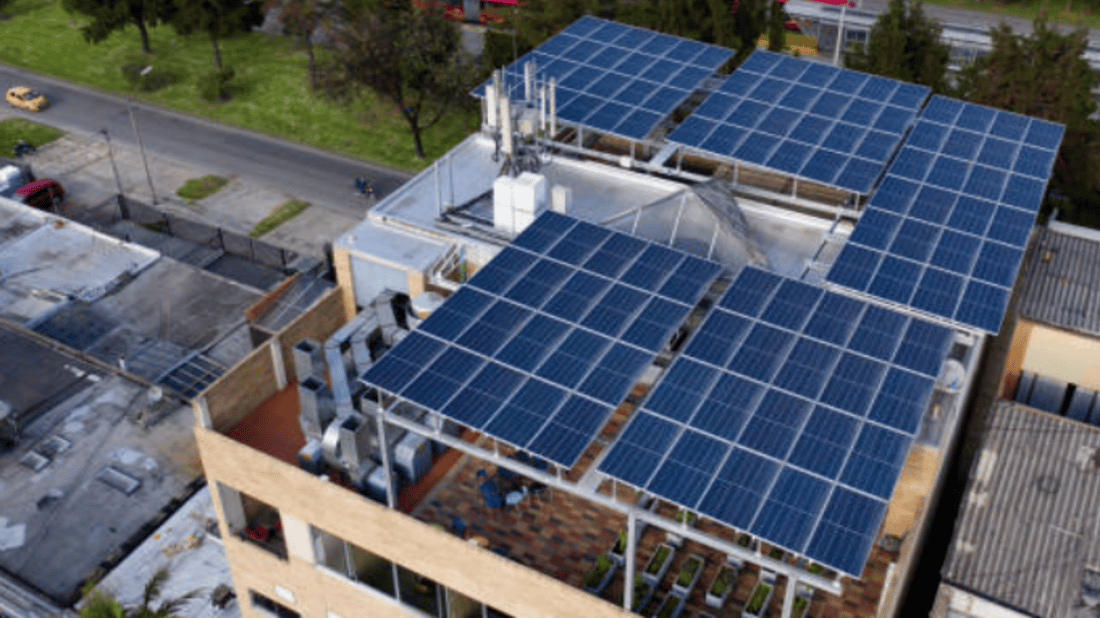Harness the Power of the Sun with a balcony solar system
With the rising costs of electricity and the increasing concern for the environment, many homeowners are turning to alternative energy sources to power their homes. One such solution is the balcony solar system. This innovative technology allows homeowners to harness the power of the sun and convert it into clean, renewable energy. In this article, we will explore the various aspects of balcony solar systems and how they can benefit you.
1. What is a Balcony Solar System?
A balcony solar system is a compact and efficient way to generate electricity using solar panels that are specifically designed for balconies or small outdoor spaces. These systems are typically made up of solar panels, an inverter, and a battery storage unit. The panels collect sunlight and convert it into direct current (DC) electricity, which is then converted into alternating current (AC) electricity by the inverter. The electricity can be used to power appliances and other electrical devices in your home, reducing your reliance on the grid.
2. How Does a Balcony Solar System Work?
When sunlight hits the solar panels, it excites electrons in the silicon cells, generating an electric current. This current is then converted into usable electricity through the inverter. The electricity produced can be used immediately to power your home or stored in the battery for later use. The stored energy can be utilized during cloudy days or at night when there is no direct sunlight available. With a balcony solar system, you can enjoy uninterrupted power supply and reduce your carbon footprint at the same time.
3. Benefits of Installing a Balcony Solar System
There are numerous benefits to installing a balcony solar system in your home. Firstly, it allows you to generate your own electricity, reducing your reliance on the grid and potentially lowering your energy bills. Additionally, solar energy is clean and renewable, which means you are contributing to a greener and more sustainable future. Balcony solar systems also require minimal maintenance and have a long lifespan, making them a cost-effective investment in the long run.
4. Cost Considerations
While the initial cost of installing a balcony solar system may seem high, it is important to consider the long-term financial benefits. With the savings on your electricity bills and potential government incentives, the system can pay for itself over time. Additionally, the cost of solar panels has significantly decreased in recent years, making them a more affordable option for homeowners. It is advisable to obtain quotes from reputable solar installation companies to get an accurate estimate of the total cost.
5. Choosing the Right Balcony Solar System
When selecting a balcony solar system, there are a few factors to consider. Firstly, assess the available space on your balcony to determine the size and number of solar panels you can accommodate. Additionally, consider the energy requirements of your household and choose a system that can meet your needs. It is also important to select high-quality panels and components to ensure optimal performance and longevity.
6. Installation Process
The installation of a balcony solar system typically involves a few steps. Firstly, a professional installer will visit your home to assess the feasibility of the installation and provide you with a quote. Once you have agreed to proceed, the installer will secure the necessary permits and schedule a date for the installation. On the day of installation, the solar panels will be mounted on your balcony, and the inverter and battery storage unit will be connected. The entire process can usually be completed within a day or two.
7. Maintenance and Monitoring
Balcony solar systems require minimal maintenance, but it is important to keep them clean and free from debris to ensure maximum efficiency. Regular inspections should be conducted to check for any damage or issues with the system. Many modern balcony solar systems also come with monitoring capabilities, allowing you to track the energy production and consumption in real-time. This information can be accessed through a mobile app or an online portal.
8. Potential Challenges
While balcony solar systems offer numerous benefits, there are a few potential challenges to be aware of. Firstly, the efficiency of the system depends on the amount of sunlight your balcony receives. If your balcony is heavily shaded or does not receive direct sunlight for a significant portion of the day, the system may not generate enough electricity to meet your needs. Additionally, some homeowners' associations or local regulations may have restrictions on the installation of solar panels, so it is important to check the rules and regulations in your area before proceeding.
9. Environmental Impact
By installing a balcony solar system, you are significantly reducing your carbon footprint. Solar energy is a clean and renewable source of power that does not produce any greenhouse gas emissions or other harmful pollutants. By switching to solar energy, you are actively contributing to the fight against climate change and helping to create a more sustainable future for generations to come.
10. Conclusion
A balcony solar system is an excellent investment for homeowners who want to reduce their reliance on the grid, save money on electricity bills, and contribute to a greener future. With advancements in technology and decreasing costs, now is the perfect time to consider installing a balcony solar system. Take advantage of the power of the sun and make a positive impact on the environment while enjoying the benefits of renewable energy.

